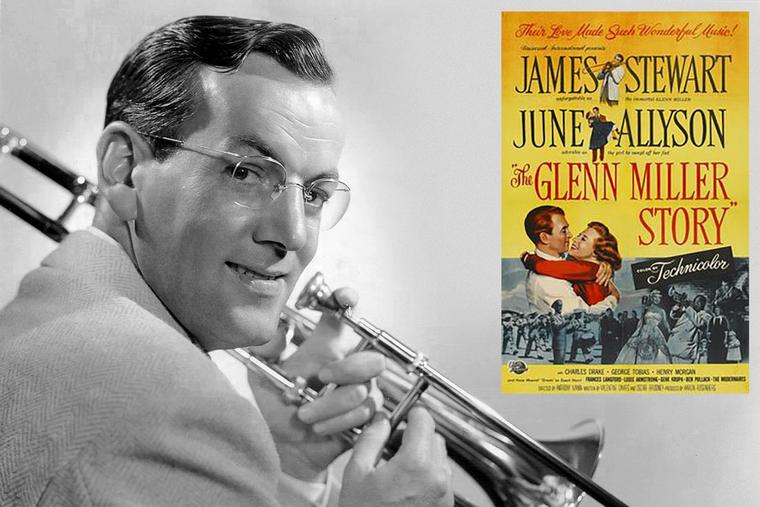The New Old Movie Review: ‘The Glenn Miller Story’ (1954)
Glenn Miller and my dad taught me a lesson: It is not just talent that produces inspirational music — it is love.

Many of Jimmy Stewart’s movies are widely known and loved for plenty of good reasons. For millions of people, It’s A Wonderful Life, Mr. Smith Goes to Washington and Harvey are favorite viewing. But there’s another Jimmy Stewart movie you may have missed. It’s a rags-to-riches musical called The Glenn Miller Story.
When the movie opens, we see Glenn buying back his trombone from a pawn shop, and we get the idea that he has hocked it several times before. Glenn is a trombonist by profession, but he aspires to become a successful musical arranger. The problem is, no one else — not even his closest friend — seems to believe in his dream.
We also learn that Glenn has a love interest in Denver named Helen Burger. On their first date in two years, Glenn explains to Helen his wish of finding the “right sound” for his arrangements. Helen is a believer in a world of doubters: she is confident he’ll find the sound.
Another two years go by, during which Glenn struggles — working on arrangements by day, and playing the trombone at night to pay the bills. Glenn calls Helen, and they quickly decide to marry. But with his new responsibilities as a husband, Glenn settles into his trombone career, opting for a steady income over pursuing his greater ambitions. He doesn’t even talk about his dream any longer.
But Helen takes note of this. She challenges him, “Do you know that in all the time we’ve been married you’ve never once mentioned that sound? Tell you the truth, Glenn, I’ve sort of been disappointed. … I just want you to keep on trying.”
Glenn reminds her that pursuing that sound will be costly — financially and otherwise. But she believes in him and urges him to continue. To her, that is much more important than money or belongings. Glenn agrees and returns to work as an arranger, eventually starting his own band.
Though more difficulties, tragedy and obstacles come along, Glenn finds that “sound,” almost accidentally. And Helen knows he’s discovered it: “There’s no maybe about it,” she assures her friend, “That’s the sound!” Suddenly, all of America is listening and dancing, and couples are falling in love to Moonlight Serenade.
After Glenn’s band achieves fame, World War II comes along, and Glenn notes that the young men who loved his music were now far away from home fighting a war. But when the soldiers couldn’t come home, Miller brought home to the soldiers. Miller enlists in the military and plays for America’s heroes overseas.
I don’t want to give away more of the story, especially if readers are unfamiliar with Miller’s biography. Suffice it to say that this is a story of perseverance, friendship and valor.
Helen Miller illustrates that perseverance is the sort of virtue that can be lent, and can be borrowed. Sometimes, you must believe in someone until he’s ready to believe in himself. It has been observed that “a friend is someone who knows the song in your heart, and can sing it back to you when you have forgotten the words.” When that man’s friend is his wife … well, some pretty wonderful things can happen.
Growing up, I watched this movie numerous times with my father, who was a trombone player, music composer and veteran himself. On nights when he played the piano for his family — which was often — he enjoyed singing a song he had composed for his bride during their engagement. He had arranged it decades before, yet he sang it as though he had written it that morning.
Glenn Miller and my dad taught me a lesson: It is not just talent that produces inspirational music — it is love.
As Thanksgiving and Christmas approach, many families will search for films to enjoy together. Consider this Jimmy Stewart classic. It will bring back some fond memories for the grandparents and create new ones for the children. As Boethius observed, “No age at all is excluded from the charm of a sweet song.”
















